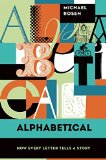Summary | Excerpt | Reviews | Beyond the Book | Readalikes | Genres & Themes | Author Bio

Critics' Opinion:
Readers' Opinion:
First Published:
Feb 2015, 448 pages
Paperback:
Feb 2016, 256 pages
 Book Reviewed by:
Book Reviewed by:
Kate Braithwaite
Buy This Book
I bought an Amstrad. Why were the letters green? Not when they were printed. On the screen. The screen was green, the letters were green. And with whopping great big serifs. No one does serifs like that any more. But now, I had joined the era of letters on a screen. The page was starting to lose its dominance. Where once writing had been that permanent thing I did with something that made marks, now the mark was temporary. Everything was postponable. OK, if there was a deadline, some- thing had to be fixed. Everything else could be changed. And I loved it that you could leave something for a year and then decide to change it. The imperfect screen page had only ever been seen by me. So where qwerty had once been permanent, as with my mother's typewriting, and where it had been semi- permanent, with pages of writing with the electric typewriter, it was now, potentially, forever provisional.
I was loyal to Amstrad. I stayed with it long after people were writing documents and playing that weird-coloured ping- pong game on the Apple, and after PCs came in and you could store thousands of documents and obliterate the universe or battle to the death in Japanese. I got an Apple. It was called a 'duo-dock'. You had a laptop which you docked into a loading bay which turned it into a desktop. Qwerty was now portable and office in one. One moment, I could type small on a tiny laptop keyboard and the next I could be big and old-style on the PC-like keyboard. It was like slipping from recorder to saxophone. The fingers just knew what to do.
And that's how it is for me now, promiscuously moving from laptops to PCs, taking my portable qwerty skill with me. Typing with my eyes shut works as a party trick for five-year-olds. Talking about one thing while typing something else is one of the most annoying things you can do with your friends and loved ones. It still seems incredible that my mind and fingers can own a know- ledge which enables me to produce pages of perfect script.
There is a drawback. Of course there is. There is always a drawback. If I write on to paper, the scribblings-out stay there. Bad for looking good. Good for staying in sight just in case I want to use something that I didn't want before. Corrections on the screen disappear. The delete button was invented by employers who wanted their secretaries to produce perfect documents. If these machines had been invented by writers, there would have been a 'correct' button which would turn the word red and bung it in the margin. Yes, I know there's an application like that that's been invented, but I want a key. I want 'correct' to be of the same status as qwertyuiop. Just something that my right-hand little finger could learn. Bebop and dop on, Correct!
Today, there are millions of keyboards and printers in homes, schools and libraries. 'Qwerty' still reigns in the office but it has escaped. Many more people than there were in my mother's time have the means of producing documents and writing of all kinds in a form that looks and feels professional.
I am curious about one thing, though. There is still enormous emphasis placed by governments and education departments on the presentation of correct writing. Schools spend millions of hours teaching children handwriting, spelling, punctuation and general orthographic neatness – with a pencil or pen. Quite a bit of time is spent doing 'IT', none of which involves learning 'qwerty'. If 'qwerty' was on the curriculum, millions of children would be able to write nearly as fast as they think, and go back and edit pages of their writing so that they could present them immaculately. Instead of learning spelling and grammar as some- thing that exists only in textbooks, they could learn how to use the spell- and grammar checks. They're not failsafe but they are a modern data-bank on which we can base our work. It's only a modern way of using a reference book. I have a feeling that in fifty years' time, people will look back with bemusement at this era in which electronic 'qwerty' was so dominant, while schools still spent so much time on pen and paper.
Excerpted from Alphabetical by Michael Rosen. Copyright © 2015 by Michael Rosen. Excerpted by permission of Counterpoint Press. All rights reserved. No part of this excerpt may be reproduced or reprinted without permission in writing from the publisher.





The House on Biscayne Bay
by Chanel Cleeton
As death stalks a gothic mansion in Miami, the lives of two women intertwine as the past and present collide.

The Flower Sisters
by Michelle Collins Anderson
From the new Fannie Flagg of the Ozarks, a richly-woven story of family, forgiveness, and reinvention.

The Funeral Cryer by Wenyan Lu
Debut novelist Wenyan Lu brings us this witty yet profound story about one woman's midlife reawakening in contemporary rural China.
Your guide toexceptional books
BookBrowse seeks out and recommends the best in contemporary fiction and nonfiction—books that not only engage and entertain but also deepen our understanding of ourselves and the world around us.